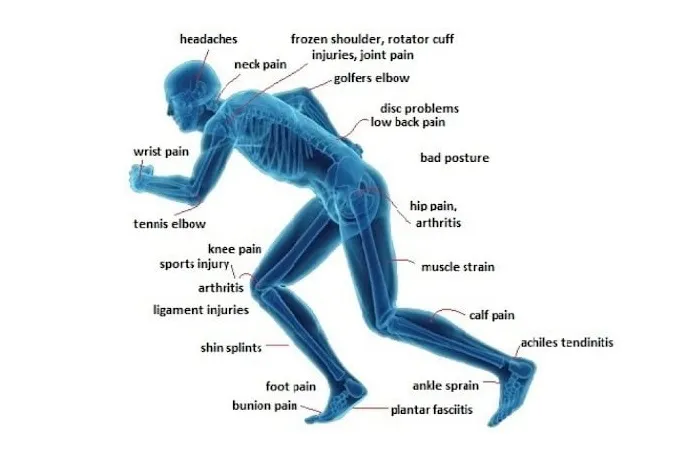3 Reasons TMJ Dysfunctionality in Edmonton Often Goes Unnoticed
3 Reasons TMJ Dysfunctionality in Edmonton Often Goes Unnoticed
TMJ Dysfunctionality in Edmonton
Temporomandibular joint (TMJ) dysfunction refers to issues affecting the jaw joints and surrounding muscles. While some individuals seek help quickly, many others go undiagnosed for months or even years. TMJ dysfunctionality in Edmonton often presents in ways that can be mistaken for unrelated concerns, resulting in missed opportunities for early support. Below are three main reasons this condition frequently escapes attention.
Reason 1: Overlapping Symptoms with Other Conditions
Jaw Pain Isn’t Always Seen as a Primary Concern
For most people, jaw discomfort doesn’t immediately prompt a visit to a healthcare provider. Unless it’s linked to severe trauma or infection, many brush off the pain as a short-term inconvenience. This mindset contributes to why TMJ dysfunctionality in Edmonton is often ignored during its early stages.

People might experience a dull ache or tightness while chewing or clicking noises but attribute it to stress, clenching, or even dental issues. These symptoms are easy to overlook or associate with everyday wear and tear, especially when they occur intermittently.
Misdiagnosis Due to Similar Symptom Profiles
TMJ dysfunctionality shares several symptoms with conditions such as:
- Tension headaches
- Migraines
- Earaches
- Sinus infections
- Dental problems
This overlap can lead professionals to explore other explanations before considering TMJ dysfunctionality in Edmonton as a potential source. Someone complaining of ear pain or pressure, for example, may undergo several ear-related assessments before being referred to the appropriate provider who recognizes jaw involvement.
The complexity of the jaw’s connection to the skull and nearby nerves contributes to this confusion. Since the symptoms reach beyond the joint itself, it’s easy for even trained eyes to miss the link unless TMJ is already on the radar.
Reason 2: Cultural and Psychological Barriers to Reporting
Stress, Anxiety, and the Jaw Connection
Stress plays a substantial role in TMJ dysfunctionality in Edmonton, where busy lifestyles are the norm; it’s common for residents to internalize tension without realizing its physical consequences. Nighttime teeth grinding and daytime clenching are common habits linked to unmanaged stress levels.
When someone is dealing with life demands, jaw stiffness might not even register as a priority. Unlike visible injuries or sharp pain, TMJ symptoms often present subtly, blending into the background noise of daily life. That can lead to delayed conversations with medical professionals.
The Stigma Around Seeking Help for Non-Emergent Pain
Another reason TMJ dysfunctionality in Edmonton tends to go unnoticed involves the social narrative around pain tolerance. Some people are conditioned to minimize or dismiss pain that doesn’t appear urgent. Chronic discomfort is seen as something to “live with,” especially if it doesn't stop someone from working or managing responsibilities.
This is particularly true in communities where pain is normalized or where there’s skepticism about pursuing help for ongoing, vague symptoms. The belief that jaw pain is “not serious enough” discourages early discussions and leads to more advanced dysfunction over time.
Reason 3: Lack of Public Awareness and Screening
Limited Public Knowledge
Compared to other musculoskeletal issues, TMJ dysfunctionality receives little attention in public health education. While back pain, arthritis, and dental hygiene are widely discussed, TMJ remains relatively absent from mainstream conversations.
Most individuals are unaware that persistent clicking, locking, or discomfort when chewing could point to a joint issue. Even fewer people understand the connection between the jaw and seemingly unrelated areas like the neck, ears, or head.
This gap in awareness allows TMJ dysfunctionality in Edmonton to progress quietly. Without adequate information, individuals don’t recognize what they’re experiencing—or know where to turn for support.
Lack of Routine Screening During Dental or Medical Visits
Routine dental visits are one of the few opportunities where early jaw issues might be identified. However, not all clinics perform comprehensive joint assessments. If a patient doesn’t mention symptoms directly, the chance to detect TMJ dysfunctionality in Edmonton during a general checkup may be lost.
Similarly, general practitioners may focus on more pressing issues, especially if a patient arrives with multiple concerns. Unless jaw-related discomfort is emphasized, it may fall to the bottom of the list, especially in busy clinics with limited appointment times.
The Local Context: Why Edmonton Sees This Pattern
Edmonton’s growing population and diverse community mean a range of healthcare challenges. Access to the right professionals can vary, especially for those without consistent care providers or extended health coverage. For TMJ dysfunctionality in Edmonton, this can create additional hurdles.
The city’s climate may also play a role. Cold weather leads many people to tense up their shoulders and jaw subconsciously. Add in seasonal stressors like icy roads, school pressures, and holiday obligations, and the conditions are ripe for increased TMJ strain—yet they often go unaddressed.
Language barriers, cultural variations in health-seeking behavior, and differing perceptions of pain further complicate early recognition of TMJ-related issues. In this kind of environment, subtle health signals are easily overshadowed by more visible concerns.
When to Suspect TMJ Dysfunctionality in Edmonton
If someone experiences any of the following on a recurring basis, it may be worth discussing with a trained provider:
- Clicking, popping, or locking of the jaw
- Pain around the temples, cheeks, or ears
- Headaches that seem to originate near the jaw
- Difficulty chewing or opening the mouth fully
- A noticeable shift in how teeth align when biting
Catching TMJ dysfunctionality in Edmonton early makes it easier to manage. Even small adjustments in behavior or oral habits can make a difference when applied before significant wear or joint damage develops.
Moving Forward with More Awareness
Addressing TMJ dysfunctionality in Edmonton involves more than just clinical solutions. It requires improved public education, better communication between providers and patients, and a shift in how pain is perceived. While the condition often flies under the radar, awareness is steadily improving. Increased collaboration between dentists, physiotherapists, and general practitioners could help identify cases sooner. Workshops, workplace seminars, or online health campaigns can also provide the public with helpful insights.
Residents don’t have to wait for serious symptoms to explore what’s happening with their jaw. Bringing up even minor concerns can lead to earlier discussions and a better path forward. In a city where the pace of life is fast and responsibilities are high, taking notice of small changes can make a meaningful difference over time.









